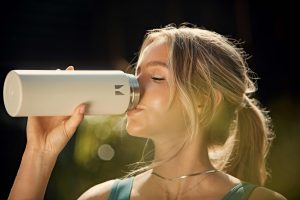Comment: Sad but not a surprise – the fall of JJB Sports

THERE is an air of inevitability over the collapse of retailer JJB Sports into administration.
The Wigan-based company has like, an injured footballer, been staggering for weeks under the weight of poor trading, high debts and a management team unsure what to do next.
When the company said on August 30 that it needed more investment to survive , launched a formal sale process, and warned investors their shares were worthless, the writing was on the wall.
The demise of the one time market leader over the last five years – cannot be laid at the door of bankers or shareholders – who have been benign and patient in the extreme, but because the business had lost its way in a highly-competitive market place and been squeezed out by two far slicker rivals.
One rival Sports Direct, the ‘pile-it-high, sell it cheap’ operator founded by Newcastle United owner Mike Ashley is expected, subject to competition watchdog approval, to buy the best-performing of JJB’s stores out of administration.
The other rival, JD Sports Fashion, which looked to buy JJB Sports on two occasions in recent years, now has other fish to fry after buying Blacks Leisure out of administration, and will not be an active player in the sale of JJB’s assets by KPMG in the coming days.
JJB Sports’ journey towards becoming a public company began in 1971 when former professional footballer turned retailer Dave Whelan bought a sports shop owned by JJ Bradburn.
Whelan, who had built up and sold a chain of shops to Morrisons, had a passion for sports, money, and uncompromising determination.
He began to grow the business, firstly in the North West – a heartland for sports with a the biggest cluster of major professional football teams of anywhere – and it soon became a national player.
It had 120 shops by 1994 when it floated on the London Stock Exchange. Four years later it bought Sir Tom Hunter’s Sports Division, making it one of the biggest sports retailers in the country.
Growth continued into the new millennium, successful new strategies were pursued, including one of launching value-for-money health clubs incorporating JJB shops.
It was not all plain sailing though, and without controversy and tragedy for the business and the Whelan family.
Tragedy came in 2002 when Whelan’s son-in-law, Duncan Sharpe, who was now chief executive of the business, took his own life.
A year later, came controversy, as JJB and a number of its peers, were fined by the Office of Fair Trading for price fixing England and Manchester United replica shirts.
JJB copped for a fine of £8.3m, the biggest single fine of any of the parties cited by the OFT, although it was reduced on appeal.
The company continued to grow sales and profits though, and was in good health under the leadership of Whelan and chief executive Tom Knight into the mid 2000s.
At this time Whelan would tour the country by JJB’s own helicopter, visiting suppliers and checking-out competitors.
Amid advancing years and with his health declining, Whelan decided to sell his and his family’s remaining 29% stake in the company, by which time it had more than 430 stores.
This was achieved in June 2007, and earned Whelan £190m and saw the arrival of Chris Ronnie, a ultra-confident former professional Umbro executive as chief executive.
Backed by an Icelandic bank, Ronnie’s strategy was to try and take JJB upmarket, which he did through the acquisition of Qube and the Original Shoe company.
As the economy moved downwards, and as JD and Sports Direct began to grab market share from JJB, trading began to decline sharply.
Despite the efforts of retail veteran Sir David Jones – brought in after the exit of Ronnie- and then former Dixons executive Keith Jones, it was all downhill from there on.
The health clubs were sold to Dave Whelan in 2009 as JJB went through the the first of two CVA deals to free it from poorly-performing stores.
Banker HBOS, now part of government-backed Lloyds Banking Group, was patient in the extreme. Every effort seemed to be being made to give JJB a fighting chance.
Shareholders, including the Bill and Melinda Gates Foundation, supported the business with more than £100m in various fund-raising bids, one of which co-incided with a second CVA.
There was hope as recently as April this year, when US retailer Dick’s Sporting Goods invested £20m in the business. The New York company soon took fright after a poor summer of sales, particularly of replica football kit.
It became clear last month that JJB would not get any further investment from Dick’s when the company wrote off its £20m as worthless .
With bank debt exceeding its market value and now firmly on the critcal list, JJB was put up for sale, but with shares now worthless, today’s news was no surprise, but will still be a hammer blow to the Wigan economy and to hundreds of employees, whose furture incomes is now far from certain.







